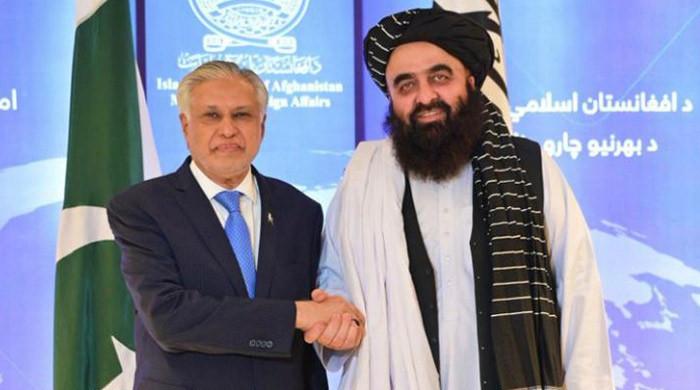Pakistan to Upgrade Diplomatic Presence in Afghanistan
Pakistan’s Deputy Prime Minister and Foreign Minister Ishaq Dar announced on Friday that Pakistan will elevate its Chargé d’Affaires in Afghanistan to the rank of Ambassador. This decision reflects the improving bilateral relations between the two nations.
In a statement shared on X, Dar noted the positive trajectory of Pakistan-Afghanistan relations following his visit to Kabul on April 19, which he described as “very productive”.
“I believe that this action will greatly improve communication, expand collaboration between Pakistan and Afghanistan in the areas of economy, security, counter-terrorism, and trade, and encourage more contact between our two friendly nations,” he added.
While Pakistan and Afghanistan maintain embassies in each other’s capitals, these missions have been led by Chargé d’Affaires instead of Ambassadors.
Notably, China was the first nation to accept an ambassador from the Taliban-led administration in Kabul, despite not formally recognizing the government. Subsequently, several other countries, including the United Arab Emirates (UAE), have followed suit.
Pakistan and Afghanistan share a lengthy and permeable border, stretching approximately 2,500 kilometers, with multiple crossing points that are crucial for regional commerce and interpersonal connections.
A significant concern for Pakistan remains terrorism, with the country urging Afghanistan to prevent its territory from being used by groups like the TTP to launch attacks within Pakistan.
Earlier this month, China facilitated a meeting between representatives from Islamabad and the Afghan Taliban administration. During this meeting, Chinese Foreign Minister Wang Yi announced the agreement between the two nations to enhance their diplomatic relations.
Following discussions with Afghanistan’s acting Foreign Minister Amir Khan Muttaqi and FM Dar, Yi stated that both countries agreed in principle to appoint ambassadors to each other’s capitals as soon as possible.
Furthermore, Islamabad and Beijing have concurred to extend the China-Pakistan Economic Corridor (CPEC) to Afghanistan, underscoring their dedication to strengthening regional connectivity and economic partnership.
Key outcomes from the Beijing meeting also encompassed pledges to bolster collaboration in security and counter-terrorism efforts, including coordinated actions against militant organizations and external interference. Additionally, there was a consensus to formally resume the trilateral dialogue process by hosting the sixth China-Afghanistan-Pakistan Foreign Ministers’ Dialogue in Kabul.
Tensions appeared to de-escalate following a recent meeting between Muttaqi and Dar in Kabul, during which the Taliban’s acting foreign minister voiced concerns regarding the repatriation of a large number of Afghan citizens from Pakistan.
During the discussions, both parties reaffirmed their commitment to maintaining open communication in a constructive and positive environment to resolve shared concerns, including security, trade, transit cooperation, and broader bilateral relations.



Comments (0)
No comments yet. Be the first to comment!
Leave a Comment